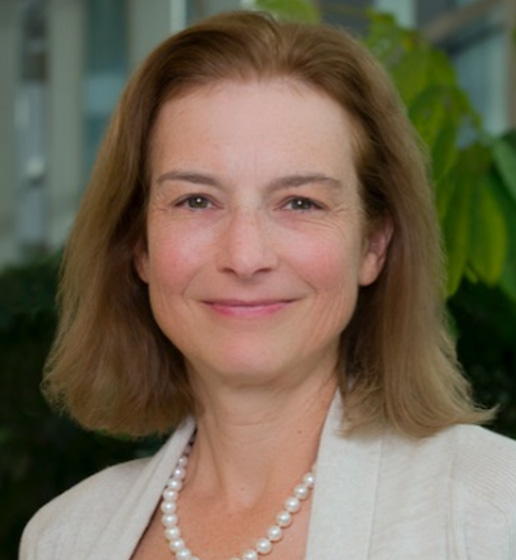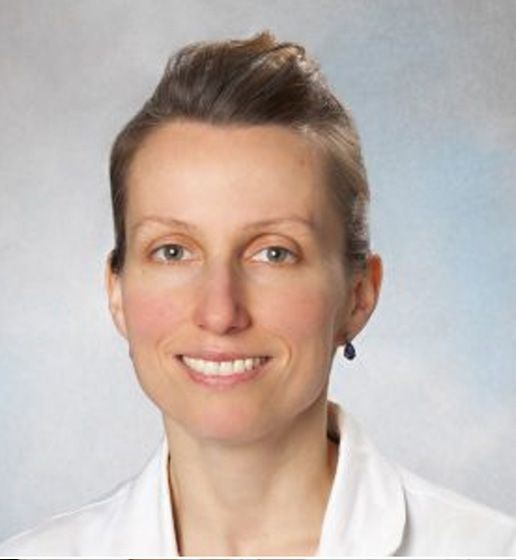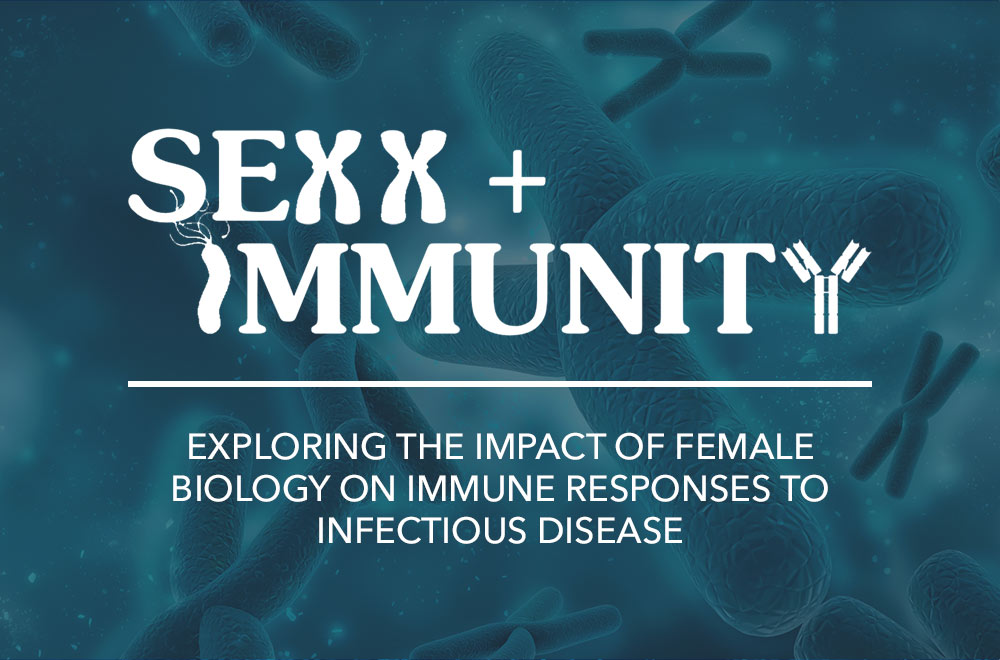You are invited to a Nov. 2, 2022, in-person or virtual seminar on sex differences in lung disease with Lisa Henske and Dawn DeMeo (see bios below). In-person attendees are invited to a networking reception following the seminar, featuring e-posters and a panel led by Henske, DeMeo, and Sarah Fortune.
This event is part of MIT’s “SeXX + Immunity” series – sessions that explore our understanding of sex differences and sex dimorphism in relation to immune responses and how presentations of infectious and complex diseases differ based on biology.
Please join us for SeXX + Immunity on November 2, 2022, virtually, or in person at: MIT Stata Center, 32 Vassar Street, Cambridge, MA 02139
Seminar at 4:15 p.m., Room 32-155 (virtual and in person)Reception at 5:15 p.m., R&D Commons (in person only)Panel at 6:00 p.m., R&D Commons (virtual and in person)
In-person attendees will enjoy a seminar, an interactive poster session, networking, panel discussion, and refreshments. If you are unable to attend in person, please select the virtual attendance option at registration and still join us for the seminar on sex differences in response to bacterial infection and the lung.
SeXX + Immunity Series Addresses a Knowledge Gap
The X chromosome does more than determine sex! When we treat biological sex (XX versus XY chromosomes) as a variable in immunity and diseases, it can lead to a new understanding of the underpinnings of disease. The COVID-19 pandemic helped amplify awareness about sex-specific differences in immunity against infection, however, we still have a lot to learn. Sex differences in disease outcomes are not limited to infectious diseases – they are observed in outcomes of autoimmune diseases and cancers, and even in response to vaccination.
Poster Session – Call for Submissions
The November 2 event will include a poster session to initiate lively conversation and collaborations between local researchers and clinicians working on all aspects of gynecology, infection, and immune responses. The focus is to explore a better understanding of how sexual dimorphisms manifest in these areas. With e-posters, speakers can connect to a monitor and give mini presentations to showcase their research. Registrants presenting a poster will have the seminar fee covered. To submit a poster for the Nov. 2 session, please click here.
Building a Community of Experts
Diseases that disproportionately impact females (who have two X chromosomes) have historically been underfunded and understudied. In addition to the SeXX + Immunity series, we’re building a community of experts from multiple subspecialties and varied expertise to discuss and study complex chronic illnesses and poorly understood pathology. We need to work together to solve these complex problems. We hope to see you at the seminars and poster sessions to start a new dialogue.
Nov. 2 Speaker Bios

Sarah Fortune is the John LaPorte Given Professor of Immunology and Infectious Diseases at the Harvard T.H. Chan School of Public Health, Director of the TB Research Program at the Ragon Institute of MGH, Harvard, and MIT and Chair of the Department of Immunology and Infectious Diseases. She received a bachelor’s of science in biology from Yale University and a medical degree from Columbia University’s College of Physicians and Surgeons. She completed her residency in Internal Medicine and clinical fellowship in Infectious Diseases at the Brigham and Women’s Hospital and Massachusetts General Hospital.

Elizabeth (Lisa) Petri Henske is the Director of the Center for LAM Research and Clinical Care at Brigham and Women’s Hospital. She is Professor of Medicine at Harvard Medical School, an Associate Member of the Broad Institute of MIT and Harvard, and a practicing medical oncologist at the Dana-Farber Cancer Institute. LAM (lymphangioleiomyomatosis) is a destructive lung disease that affects almost exclusively women, with an increased rate of progression during pregnancy. Dr. Henske’s laboratory made the pivotal discovery that LAM is caused by mutations in the tuberous sclerosis complex 2 (TSC2) gene, leading to clinical trials demonstrating efficacy of mTORC1 inhibitors. She also was the first to discover that the TSC1 and TSC2 proteins physically interact. Her research laboratory is focused on the cellular, metabolic, and immunologic mechanisms underlying the pathogenesis of TSC and LAM. She is a member of the American Society for Clinical Investigation and the Association of American Physicians. Dr. Henske has received awards for her research from the Tuberous Sclerosis Alliance, The LAM Foundation, the American Thoracic Society, and the Society for Women’s Health Research (the Medtronic Prize).

Dawn DeMeo is a Pulmonary/Critical Care specialist with a care focus on advanced lung disease in women with chronic obstructive pulmonary disease (COPD). She is an Associate Professor of Medicine at Harvard Medical School and a senior respiratory genetics researcher in the Channing Division of Network Medicine. Over the past two decades she has developed a vision to streamline effective multidisciplinary care for women and men with COPD, with an eventual goal of designing and implementing specialized treatment informed by needs specific to genetic susceptibility and other risk factors, sensitive to social (gender) and other biological (sex chromosome and hormone-related) aspects that may impact differences in men and women with advanced lung disease. She received a bachelor’s of science in biology from Yale University and a medical degree from Weill Medical College of Cornell University. She completed her residency in Internal Medicine and clinical fellowship in Pulmonary and Critical Care Medicine at the Brigham and Women’s Hospital and Massachusetts General Hospital, a Respiratory Genetics fellowship at the Channing Lab and a degree in Quantitative Methods from the Harvard T.H. Chan School of Public Health.








